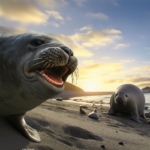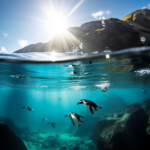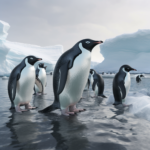Do Penguins Eat Other Penguins
Penguins are fascinating creatures that inhabit the icy regions of the Southern Hemisphere. Known for their distinctive appearance and adorable waddling, these flightless birds have captured the hearts of many. However, have you ever wondered if penguins eat other penguins? In this article, we will explore this intriguing question and shed light on the dietary habits of these remarkable birds. So, let’s dive into the world of penguins and discover whether they indulge in cannibalistic behavior or not.
Key Takeaways
- Penguins do not typically eat other penguins.
- Cannibalism among penguins is rare and usually occurs in extreme circumstances.
- The main diet of penguins consists of fish, krill, and squid.
- Penguins are known for their strong social bonds and cooperative breeding behavior.
Understanding Penguins’ Eating Habits
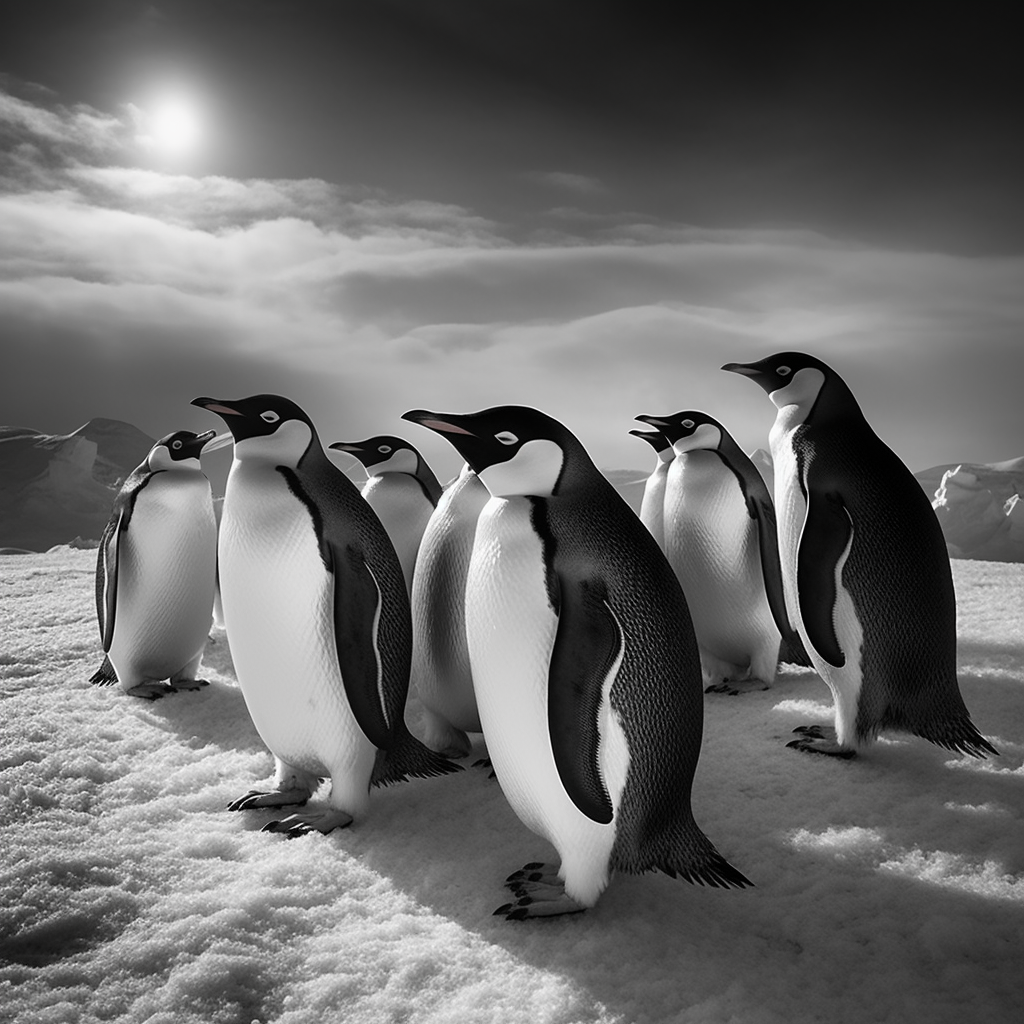
Penguins are fascinating creatures that have adapted to survive in some of the harshest environments on Earth. While they are known for their adorable waddling and distinctive appearance, their eating habits are equally intriguing. In this section, we will explore how often penguins eat, where they find their food, and the unique ways in which they consume their meals.
A. How Often Do Penguins Eat?
Penguins have a high metabolic rate, which means they need to eat frequently to maintain their energy levels. The frequency of their meals depends on various factors, including the species of penguin and the availability of food in their habitat. Generally, penguins feed on a daily basis, sometimes even multiple times a day.
During the breeding season, when penguins are raising their chicks, they need to consume larger quantities of food to sustain themselves and provide nourishment for their young. This period of increased feeding activity ensures the survival and growth of the penguin colony.
B. Where Do Penguins Eat?
Penguins primarily inhabit the Southern Hemisphere, with the majority of species found in Antarctica. However, they can also be found in other regions such as South Africa, South America, and the Galapagos Islands. The specific location where penguins feed depends on their species and their proximity to their preferred food sources.
Penguins are well adapted to life in the ocean and are excellent swimmers. They rely on their streamlined bodies and strong flippers to navigate through the water in search of food. They are known to dive to impressive depths, sometimes reaching over 500 meters, in pursuit of their prey.
C. How Do Penguins Eat?
Penguins are carnivorous creatures, and their diet primarily consists of fish, krill, squid, and other small marine organisms. They are opportunistic feeders, meaning they will consume whatever food source is readily available to them.
When hunting, penguins use their keen eyesight to spot their prey underwater. Once they have located their target, they use their streamlined bodies and powerful flippers to propel themselves through the water, swiftly closing in on their unsuspecting prey. Penguins catch their food by using their beaks to snatch or grab their prey, often swallowing it whole.
Some species of penguins, such as the Emperor penguin, are known to undertake long foraging trips, traveling vast distances to find food. These journeys can last for several weeks, during which time the penguins rely on their fat reserves to sustain themselves.
In conclusion, penguins have unique eating habits that are essential for their survival in their harsh environments. They feed frequently, especially during the breeding season, and rely on their exceptional swimming abilities to locate and capture their prey. Understanding these eating habits helps us appreciate the remarkable adaptations that penguins have developed to thrive in their icy habitats.
The Penguin Diet: Beyond Fish
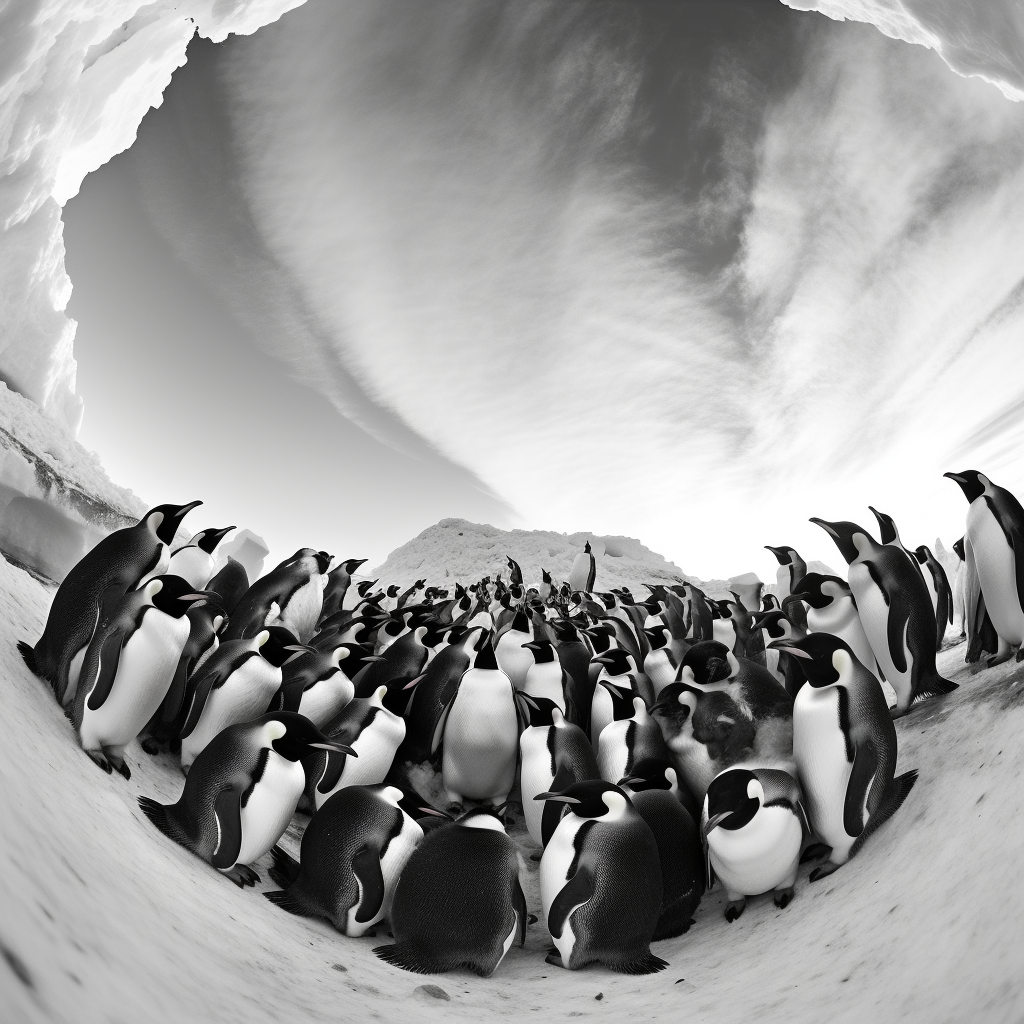
A. Do Penguins Eat Other Birds?
When we think of penguins, we often imagine them gracefully diving into the ocean to catch fish. However, their diet is not limited to just fish. Penguins are opportunistic feeders, and depending on the circumstances, they may consume other birds as well. While it is not a common occurrence, there have been documented cases of penguins preying on other bird species.
In the Antarctic, where penguins reside, competition for food can be fierce. During times of scarcity, penguins may resort to hunting other birds as a means of survival. This behavior is more commonly observed among larger penguin species, such as the Emperor penguin. These majestic birds have been known to prey on smaller bird species, including petrels and other seabirds.
It’s important to note that inter-species feeding among penguins is not a regular part of their diet. Penguins primarily rely on fish, krill, and squid as their main sources of sustenance. However, in extreme circumstances where food is scarce, penguins may exhibit predatory behavior towards other birds.
B. Do Penguins Eat Meat?
Yes, penguins do eat meat. As mentioned earlier, their diet primarily consists of fish, krill, and squid, all of which are sources of animal protein. Penguins have adapted to their marine environment and have developed specialized beaks and streamlined bodies that allow them to catch and consume their prey efficiently.
Fish, in particular, make up a significant portion of a penguin’s diet. They are agile hunters, using their streamlined bodies and strong flippers to propel themselves through the water in pursuit of fish. Penguins have sharp, backward-facing spines in their mouths that help them grip and swallow slippery prey.
In addition to fish, penguins also consume krill, which are small shrimp-like crustaceans, and squid. These marine creatures provide the necessary nutrients and energy for penguins to survive in their harsh Antarctic habitat.
C. What Do Penguins Not Like to Eat?
While penguins have a diverse diet, there are certain foods that they tend to avoid. One such example is seaweed. Penguins are not adapted to digest plant matter, and their digestive systems are better suited for processing animal protein. Seaweed lacks the necessary nutrients and energy that penguins require, so they typically steer clear of it.
Another food source that penguins are not particularly fond of is carrion. Penguins prefer to consume fresh prey rather than scavenging on dead animals. They rely on their hunting instincts to catch live prey and are less likely to consume carcasses.
It’s also worth noting that penguins are not known to eat other penguins as a regular part of their diet. While there have been isolated cases of penguin cannibalism, it is not a common behavior among these birds. Penguins are social creatures that form colonies for breeding and raising their young. They rely on cooperation and communal efforts rather than aggression towards their own species.
In conclusion, while penguins primarily feed on fish, they are opportunistic feeders that may consume other birds in times of scarcity. They have a carnivorous diet, relying on animal protein from fish, krill, and squid. However, penguins tend to avoid plant matter like seaweed and are not inclined to eat carrion or engage in cannibalism within their own species. Their feeding habits are fascinating and play a crucial role in their survival in the Antarctic ecosystem.
The Controversial Question: Do Penguins Eat Other Penguins?
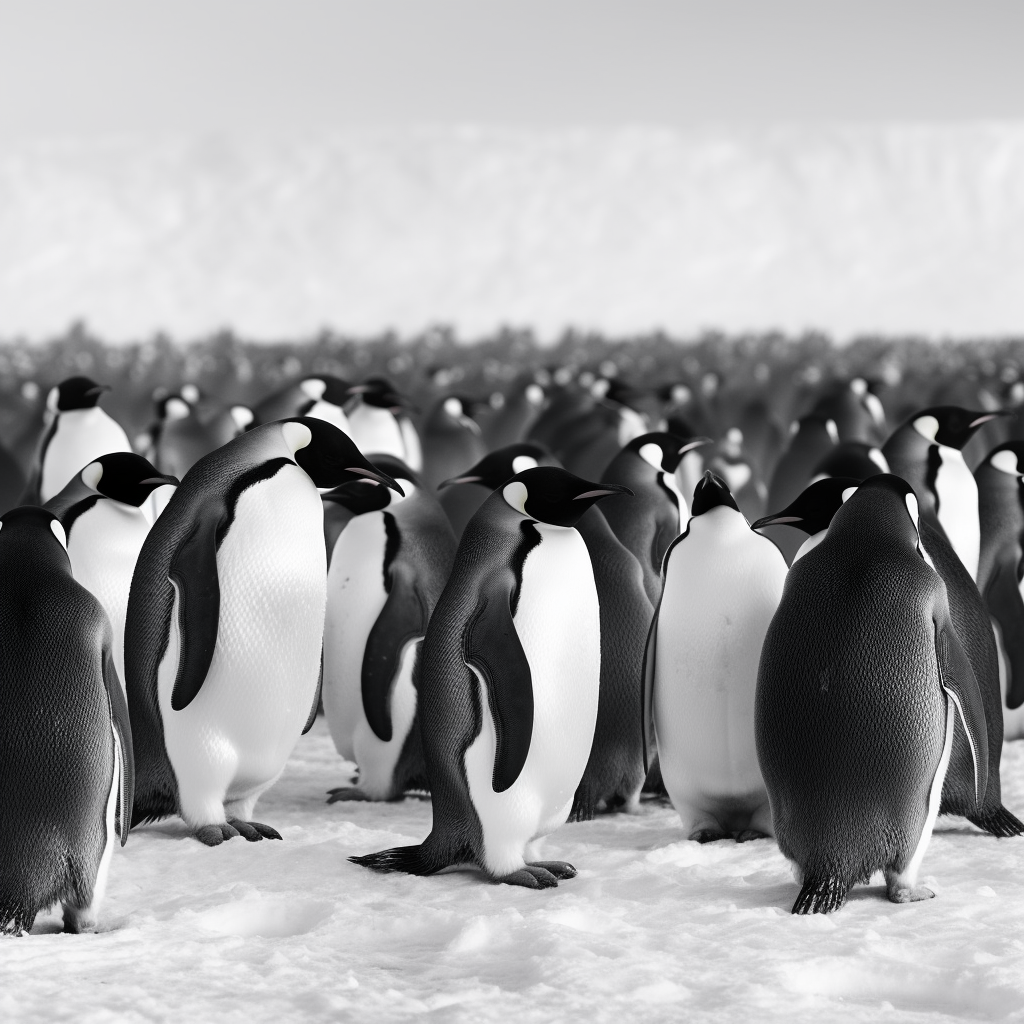
A. Can Penguins Eat Other Penguins?
When it comes to the question of whether penguins eat other penguins, the answer is not as straightforward as one might think. Penguins are known for their adorable waddles and playful antics, but they are also skilled hunters in the Antarctic food chain. While penguins primarily feed on fish, krill, and squid, there have been instances of penguins engaging in cannibalistic behavior.
B. Instances of Penguins Eating Other Penguins
Penguin cannibalism is a rare phenomenon, but it has been observed in certain circumstances. One such instance is during times of scarcity, when food sources become scarce and penguins struggle to find enough sustenance to survive. In these desperate situations, penguins may resort to preying on their own kind.
Another scenario where penguins may eat other penguins is during territorial disputes. Penguins are known to be fiercely protective of their nesting sites and breeding territories. When two penguins come into conflict over a particular area, aggression can escalate, leading to one penguin attacking and consuming the other.
It’s important to note that cannibalism among penguins is not a common occurrence and is more likely to happen under extreme circumstances. Penguins have evolved to rely on a diet of fish and other marine creatures, and they have developed specialized adaptations to catch their prey efficiently. Their beaks are designed to catch and hold slippery fish, and their streamlined bodies allow them to swim swiftly through the water in pursuit of their prey.
While penguins are skilled hunters, they are also part of a complex ecosystem where they have their own predators. Penguins face threats from larger marine animals such as seals and orcas, who see them as a potential meal. Therefore, it is more common for penguins to be preyed upon by these predators rather than engaging in inter-species feeding.
In conclusion, while penguins are not known to be habitual cannibals, there have been rare instances where they have been observed eating other penguins. These instances usually occur during times of scarcity or territorial disputes. However, it is important to remember that penguins primarily rely on fish, krill, and squid as their main sources of food. Cannibalism among penguins is a fascinating but infrequent behavior that highlights the challenges these remarkable birds face in their quest for survival in the harsh Antarctic environment.
Why Do Penguins Eat What They Eat?
A. The Nutritional Needs of Penguins
Penguins, like any other living organisms, have specific nutritional needs that they must meet in order to survive and thrive in their environment. The diet of penguins varies depending on the species and their habitat, but it primarily consists of fish, squid, and krill. These marine creatures provide the necessary nutrients, such as proteins, fats, and minerals, that penguins require to maintain their health and energy levels.
Penguins are known to be opportunistic feeders, meaning they will consume whatever food source is readily available to them. This adaptability allows them to survive in harsh and unpredictable environments, such as the Antarctic, where food can be scarce at times. Penguins have evolved to be efficient hunters, using their streamlined bodies and strong flippers to swim and catch their prey underwater.
B. The Impact of Environment on Penguin’s Diet
The environment plays a crucial role in shaping the diet of penguins. In the Antarctic, where most penguin species reside, the food chain is dominated by krill. Krill are small, shrimp-like crustaceans that form massive swarms in the Southern Ocean. These swarms attract a wide range of marine animals, including penguins, who rely on krill as a primary food source.
However, penguins are not limited to krill alone. Depending on their size and location, penguins may also feed on fish and squid. Larger penguin species, such as the Emperor penguin, have been observed hunting larger fish species like Antarctic silverfish. Smaller penguin species, on the other hand, tend to feed on smaller fish and squid.
The availability of food also influences penguin feeding habits. During the breeding season, when penguins need to provide for their chicks, they may travel long distances in search of food. This can lead to inter-species feeding, where penguins from different colonies come together to hunt in areas with abundant food resources.
In some cases, penguins may resort to cannibalism when food is scarce. This behavior has been observed in Adélie penguins, where individuals may prey on weaker or injured members of their own species. While cannibalism is relatively rare, it highlights the extreme measures penguins may take to survive in challenging environments.
In conclusion, the diet of penguins is primarily composed of fish, squid, and krill, which provide the necessary nutrients for their survival. The environment and availability of food play a significant role in shaping penguin feeding habits. Penguins are adaptable and opportunistic feeders, allowing them to thrive in diverse habitats and endure periods of food scarcity. Conclusion
In conclusion, while penguins are known for their adorable appearance and waddling walk, they are not as innocent as they may seem. Although they primarily feed on fish and other marine creatures, there have been rare instances where penguins have been observed engaging in cannibalistic behavior. This usually occurs when food sources are scarce or during territorial disputes. However, it is important to note that such behavior is not common among penguins and is considered an exception rather than the norm. Penguins have evolved to be efficient hunters in their natural habitat, and their diet primarily consists of fish and krill. They have developed specialized beaks and streamlined bodies to help them catch their prey underwater. Overall, while penguins may occasionally resort to eating other penguins, it is not a regular occurrence and should not be seen as a defining characteristic of their behavior.
Frequently Asked Questions
Do penguins eat other birds?
No, penguins do not eat other birds. Their diet primarily consists of marine life such as fish, squid, and krill. They are adapted to hunting in the ocean, not for preying on other birds.
What do penguins eat other than fish?
Apart from fish, penguins also eat squid and krill. The specific diet may vary based on the species of penguin and the availability of food in their particular habitat.
Why do penguins eat?
Penguins eat to survive. They need energy to maintain their body temperature, to swim, to hunt, and to carry out other daily activities. The food they consume is also essential for breeding and molting periods.
Where do penguins eat?
Penguins eat in the ocean. They are excellent swimmers and divers, and they hunt for their food in the water. Once they catch their prey, they eat it before resurfacing.
Can penguins eat other penguins?
No, penguins do not eat other penguins. While they can be aggressive during territorial disputes or mating season, they do not resort to cannibalism. Penguins primarily eat marine life.
How often do penguins eat?
The frequency of a penguin’s meals depends on several factors such as the species, the time of year, and the availability of food. During the breeding season, they may go several days without eating. At other times, they may eat several times a day.
How do penguins eat?
Penguins catch their prey with their beaks while swimming in the ocean. They have a hook at the end of their beak and barbs on their tongue that help them grip slippery prey. They usually swallow their food whole while still underwater.
Do penguins eat meat?
Yes, penguins are carnivores, meaning they eat meat. However, their diet is restricted to marine life such as fish, squid, and krill. They do not eat land animals or birds.
What do penguins not like to eat?
Penguins are not known to eat land-based plants or animals. They also avoid certain types of marine life that are too large, too small, or not found in their specific habitat.
What are the main factors affecting the penguin diet?
The penguin diet is influenced by several factors including the species of penguin, the location of their habitat, the time of year, and the availability of food sources. Changes in the Antarctic food chain, due to climate change or other environmental factors, can also significantly impact what penguins eat.

